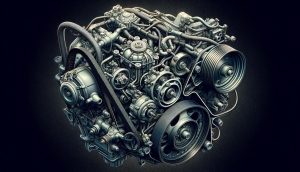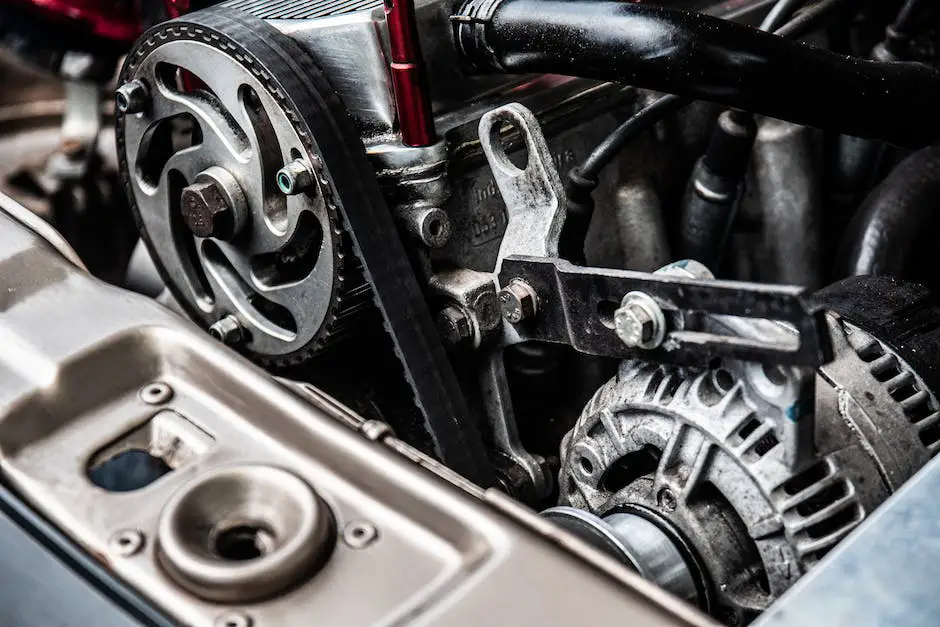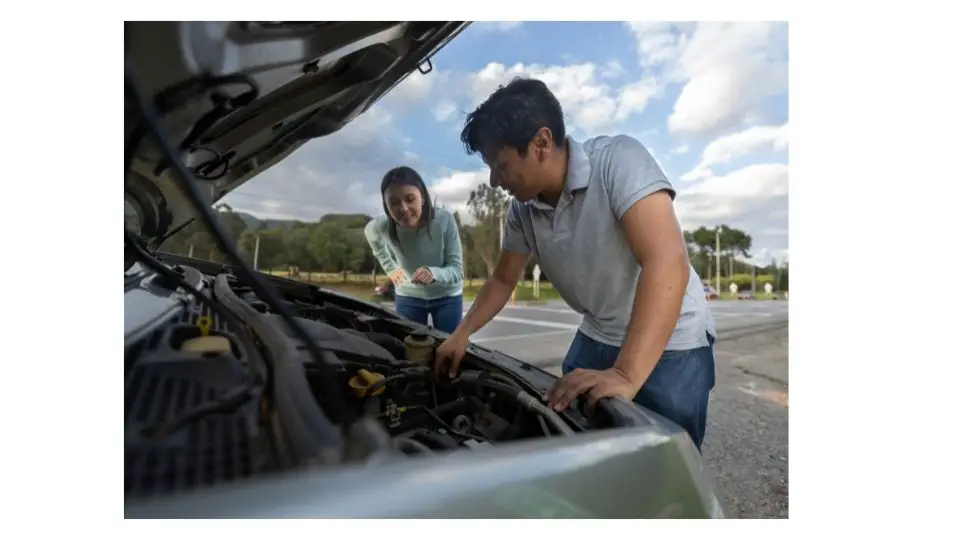Though Ecotec engines were launched in 1994, the Ecotec 2.0L first made its debut in 2003 and has seen three generations, with each engine from each generation differentiated by a unique code. Each new version is an upgraded version of its predecessor except for the LTG debuted in 2013, which used an entirely different part from its processor—LHU.
The engine is durable if used according to recommendation and has sufficient power to take on cars they are installed on.
Chevy 2.0 Ecotec Specs
The engine generally utilizes cast aluminum blocks. While some versions featured a direct injection system, others used the multi-port injection and dual overhead camshaft. The engine also comes with a twin-turbo, which not only allows sufficient power delivery to the engine and better throttle response but also eliminates turbo lag.
With a maximum engine speed of 7000 RPM, it outputs torque between 177- 295 lb-ft and horsepower of 248-272 hp, just enough to take on the cars fitted to it. Some users, however, don’t agree with this.
According to some users, unless tuned up with a bunch of aftermarket parts, the stock 2.0L Ecotec can do only a little.
This engine has very little to do with what you and I drive everyday. I might be wrong but it’s not that impressive to me to add a bunch of aftermarket parts and tons of boost to make great power and then give GM credit for it. The stock parts that they mentioned lasting are parts that always last a long time if the tune is spot on and there is no detonation so to me it’s not really any big deal. Now if any of the stock rods, pistons, crank, rings, cam or heads were used then I would be impressed.
Even the stock parts purported to be durable will only last longer if the tune-up is done properly and no detonation is involved.
The Chevy 2.0 Ecotec from General Motors is a four-cylinder engine and houses 2.0 liters of fuel. It utilizes the DOHC layout, a design that uses four valves per cylinder.

Here is a quicker glimpse of the GM 2.0L Ecotec
|
Manufacturer |
General Motors |
|
Production year |
2003 till date |
|
Material |
Cast aluminum, steel |
|
Engine orientation |
Traverse Longitudinal |
|
Fuel |
Gasoline (premium) |
|
No of cylinder |
4 |
|
Engine size |
2.0 liters |
|
Turbo |
Twin turbocharger |
|
Torque |
177- 295 lb-ft |
|
Horsepower |
248-272 hp |
|
Versions |
LK9, LSJ, LNF, LDK, LHU, LTG and LSY |
GM/Chevy 2.0L Ecotec engine problem
Despite its reputation for its solidity, maneuverability, and fuel efficiency, the engine is not perfect and has had its share of problems over the years.
Here are the most common GM 2.0L Ecotec problems.
Carbon Build-up
Carbon build is not something peculiar with just the Ecotec 2.0L; it’s an issue with most engines with direct injection systems. In direct injection engines, oil deposits released from the engine go directly into the cylinder, build up, and remain in the valves and tubes.
Because engines with direct injection sprays fuel directly into the engine, there is nothing to wipe out oil on the intake valves to prevent build-up. Contrarily, engines with regular port injection spray fuel into the intake port, helping to wipe off oil from the intake, invariably preventing carbon from building up.
This is why it is important to use quality fuel that can help avoid the carbon buildup in engines with direct injection systems, according to many owner reviews.
No, “all” direct injection engines don’t have a problem with this. And it’s not necessarily a warranty issue at all. It can be a crappy fuel issue. Secondly, GM engines rarely have a carbon issue at all.Buy “Top Tier” fuels. That will probably cut way back on carbon buildup. Cheap gas=carbon buildup. Unfortunately, our govt. allows the sale of inferior fuels. The minimum allowable by law fuel additive often won’t cut it, especially for someone who is easy on the throttle. If you’ve already got a buildup issue, you’re going to have to have it cleaned out.
Carbon buildup often leads to performance issues such as misfires, rough idle, stuttering and hesitation at idle, and power loss. The best way to rectify this will be to clean it using the walnut blasting procedure, which will set you at $400-$800, depending on the technician and condition of your cylinders.
Manufacturers, however, recommend you leave this procedure until the engine has between 70-100k miles. You could even use your engine for life without needing to clean the intake valves.
DIY: Remove Carbon Build Up
If you’re a Chevy enthusiast and would like to try this yourself, check out the video below. The host has removed the carbon build up from direct injection engines for just $12.
In summary, the host picks up some CRC GDI IVD Intake Valve & Turbo Cleaner, warms up the engine, and applies the cleaner through the brake booster vacuum line while maintaining the engine RPM to avoid stalling. This process creates significant smoke, indicating the removal of carbon deposits. He then lets the car sit for an hour and concludes with a test drive on the highway to ensure all residues are expelled through the exhaust.
Piston issues
Piston failures were common in the early years of some 2.0 Ecotec versions due to the engine design. A good example is the LTG version. Though GM corrected these flaws in later models, these pistons are not the most powerful; they are made of cast aluminum, not forged.
Using it on the stock engine works very fine, and piston failures wouldn’t really be an issue. If, however, you choose to tune your engine for more boost, also upgrade the pistons to an aftermarket forged aluminum piston.
Piston failures result in knocking noises, misfires, excess smoke, rapid oil consumption, and an overall decrease in engine performance. With repairs costing $5000 plus. However, be watchful; defective pistons symptoms most times look like that of failing intake valves.
Oil loss
Some 2.0 Ecotec had timing covers that tend to leak prematurely due to a flawed design. The leaks are usually slow because the timing cover holds them, but with time, you will see puddles under your car. Oil leaks may also result from valve gasket cover.
Generally, turbo engines generate a lot of heat that may, over time, impact the gasket and cause a leak. Oil leaks may result in burning oil smells and smoke from the engine bay due to oil dropping and burning on the engine block. You may also notice oil shortages and visible leaks. These repairs usually average between $500-$1000.
Benefits of the Chevy 2.0 Ecotec
You can enjoy these by installing the Chevy 2.0L Ecotec.
- Lower fuel consumption without compromising power.
- Quicker throttle response accounting for a more responsive driver experience.
- Smooth acceleration and maneuverability even at low torque thanks to the tailored square shape.
- Durable.
- Allows tune-up for more power.
- Its integrated aluminum cylinder head/exhaust manifold helps in weight reduction, which further accounts for increased fuel efficiency and weight balance between the rear and front.
- Aluminum coating also makes the engine resistant to some external elements, such as rust.
- It’s horsepower and torque range allows boost for excellent power and great road delivery.
Conclusion
While the GM/Chevy 2.0L Ecotec offers a balance of reliability and performance, note that the engine is not totally problem-free. Complaints are just minimal compared to older models. Power is sufficient but not the most powerful. So, if you want more power from the engine, opt for a tune-up. Just ensure the tune-up is on point.

While growing up, I knew I had a thing for car repairs though my parents never wanted me to learn mechanics. I always visit a mechanic garage in my small neighborhood after school. As I grew older, at age 16, I got addicted to anything automotive. My parents had to enroll me in that mechanic garage since giving up was never an option for me. As a dedicated mechanic who got into the industry from an early age, I’m graced with an addiction to diagnosing and rectifying automotive problems with ease.



